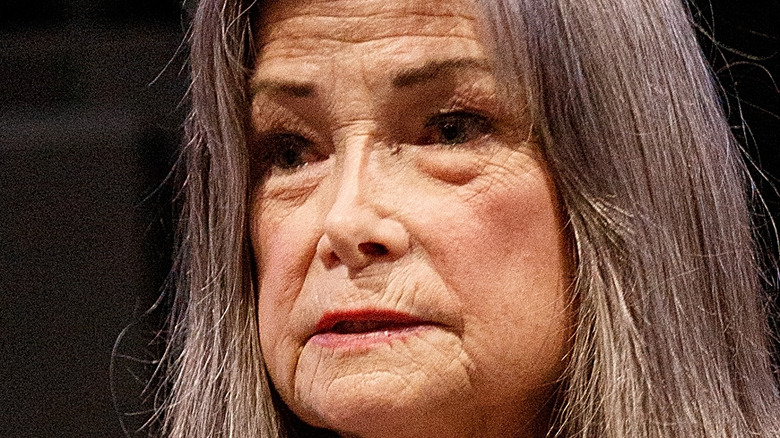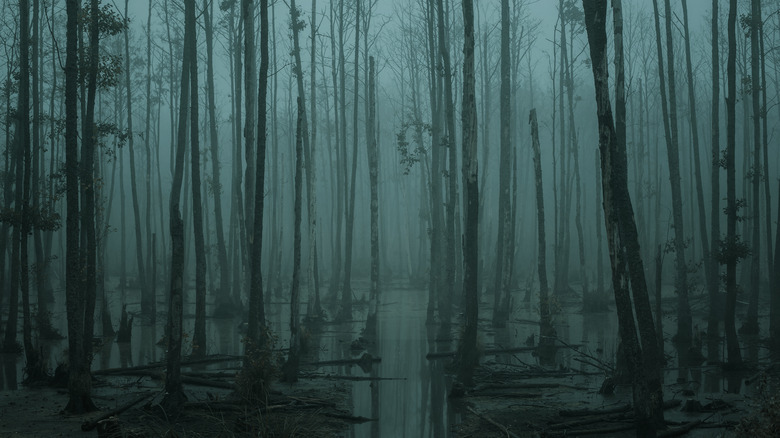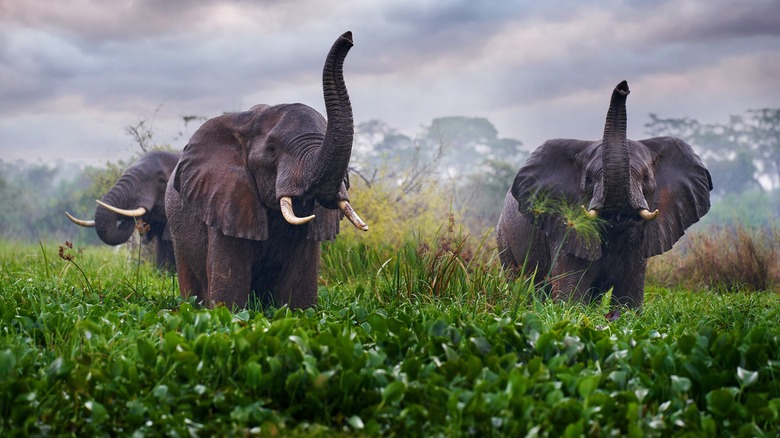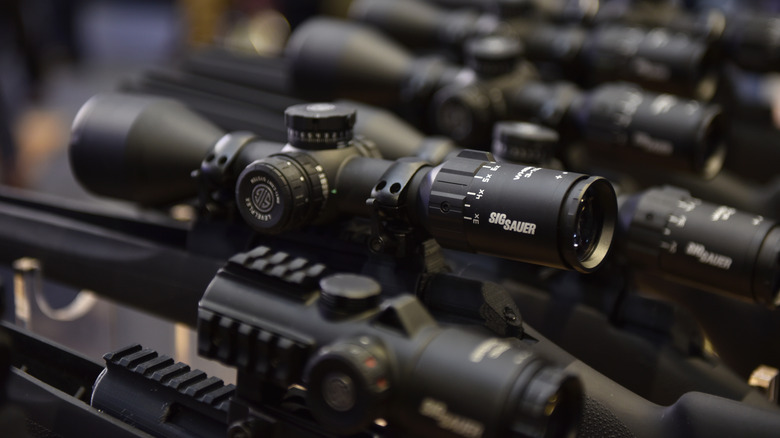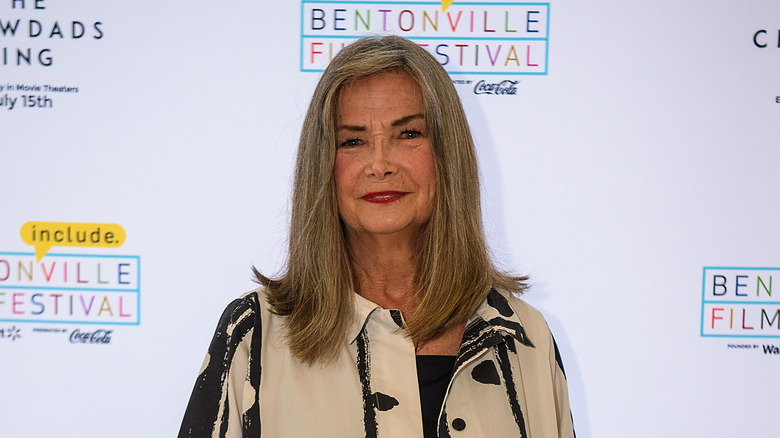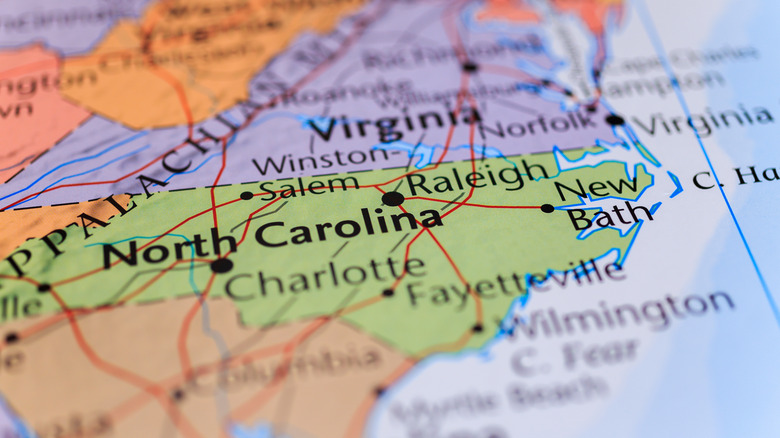Is Where The Crawdads Sing Based On A True Story?
Even before a single frame of the film had been shown in any theater, one of the most controversial movies of the summer of 2022, according to Slate, was "Where the Crawdads Sing," based on Delia Owens' (pictured above) 2018 debut novel of the same name. The book, described by The New York Times as a "small literary novel," tells two simultaneous stories while the plots intertwine. One story is about a young North Carolina girl, Kya, who is abandoned by her family and left to fend for herself in the swamps. She quickly learns how to forage and, eventually, how to gather mussels to sell to shopkeepers in a nearby town. Another timeline involves a murder in a fictitious North Carolina coastal community, according to The Guardian.
The book exceeded all expectations for a debut novel from an author of her age (70), quickly becoming a darling among book clubs as well as tearing up the New York Times bestseller charts. Even more unusually for a debut novel, it was optioned for a movie. As it turns out, there is a connection between Delia Owens and a real murder, although just how much of a connection remains unclear.
'Where The Crawdads Sing' is fiction
"Where the Crawdads Sing" has been marketed as a fiction bestseller, and for all intents and purposes, the book is wholly fiction, according to Distractify. There was never a little girl named Kya abandoned to fend for herself in the North Carolina swamps in the 1950s (or if there had been, she's not the same girl Owens wrote about). Nor have there been any murders in North Carolina — at least, not within the book's time frame — in which a feral swamp child was a subject and/or a person of interest.
However, there's an old saying in the writing industry: "Write what you know." And Delia Owens almost certainly included some aspects of her life — experiences she lived through, skills she learned, people who came into and out of her orbit — within the narrative in the book. Further still, Owens grew up in the American South, and she and her husband are devout naturalists who spent decades living in the wild and advocating for conservation. It was their time in Africa that put Owens and her husband in the crosshairs of a real murder investigation.
Delia and Mark Owens' advocacy in Africa
Mark and Delia Owens met in the 1970s, according to a 2010 report by The New Yorker, while both were studying biology at the University of Georgia. The young couple decided to devote their lives to conservation in Africa, and soon enough, they'd sold everything and taken up residence in an impossibly remote corner of the continent called Deception Valley, in Botswana.
Within a few years of living in Africa, the couple became aware of some harsh realities about wildlife on the continent. In particular, they learned about how widespread the problem of poaching was and is in parts of Africa one day when they came across a trapped herd of wildebeest, poachers shooting them at will. "We watched through binoculars as the slaughter continued," Owens wrote. "The poachers were preoccupied with their butchery and did not see the aircraft until it was at ground level, roaring across the plain toward them at 160 miles an hour."
The couple found that Botswana's government was not only not at all interested in hearing the couples' complaints about its haphazard wildlife management, the couple weren't welcome in the country at all, and they were expelled. They moved on, and eventually wound up in Zambia.
A poacher is murdered on-camera
In 1995, according to Bustle, a camera crew was dispatched to Zambia to record a documentary about Mark and Delia Owens and their conservation efforts in Africa. Already by that time, tensions were high between the couple and area poachers, tension that was encapsulated by orders Mark gave to his men, and which were captured for the cameras. "Shoot at them first ... when you see the whites of his eyes," he told his scouts. The Owens' would later clarify that the "shoot to kill" policy was the Zambian government's, and not their own.
The cameras recorded a poacher being shot and killed. Scouts identified him as a "trespasser" and shot him multiple times. The ABC camera crew was sworn to secrecy, as The New Yorker reported, with host Meredith Vieira explaining to the audience, "We were allowed to accompany patrols in Zambia after we agreed not to identify those involved, should a shooting occur. On this mission, we would witness the ultimate price paid by a suspected poacher." The poacher has not been identified, according to Slate, and Zambian authorities would like to have a word with Mark Owens and people who worked with him or for him.
Were Mark or Delia Owens responsible for the poacher's murder?
The murder of the poacher might have been forgotten about — outside of Zambia, that is — had Delia's name not come back into the public consciousness once "Where the Crawdads Sing" got big. But when the book became a sensation, says author Jeffrey Goldberg, who wrote the New Yorker piece that described his investigation into the poacher's murder, at least some people started connecting the dots. "A number of people started emailing me about this book, readers who made the connection between the Delia Owens of 'Crawdads' and the Delia Owens of the New Yorker investigation," he told Slate.
Mark and Delia Owens have since divorced, according to the New Yorker, and Delia is not considered a suspect in the Zambia murder. However, both her ex-husband and Mark's son, Christopher, are wanted for questioning there, according to Slate, and have stayed clear of Africa for that reason. Goldberg claims that "several sources" told him that Mark and Christopher Owens were on the scouting team that shot the poacher, and that Mark covered up the killing.
Meanwhile, Delia's sister-in-law Mary Dykes said, via The New Yorker, that the shooting was justified. "From what we have been able to find out about the incident, the scouts felt so protective of the unarmed camera and sound people that they killed the poacher — who was, indeed, heavily armed and, according to Zambian law, subject to 'shoot to kill,'" she said.
The connections Between Kya And Delia
More than one author of fiction has included some version of their self in their narrative. Over at Slate, writer Laura Miller posits that the similarities between Kya, the heroine of "Where the Crawdads Sing," and Delia Owens herself are pretty obvious. Both have deep connections to the South, both preferred the company of animals to other humans, and both are at least obliquely connected to a murder.
Owens admitted as much, albeit indirectly. "Almost every part of the book has some deeper meaning. There's a lot of symbolism in this book," Owens said. Slate writer Laura Miller seems convinced that the "deeper meaning" goes quite deep, actually. "Having her heroine stand accused of murder echoes the Owens' Zambian experience," Miller wrote, later adding that, "Fiction writers often don't realize how much of their own unconscious bubbles up in their work, but at times Owens seems to be deliberately calling back to her Zambian years."
